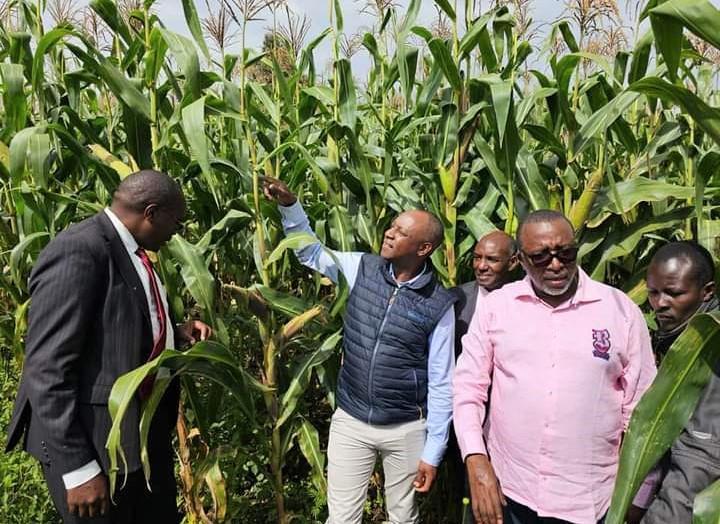Africa-Press – Kenya. The cost of key food items fell in March compared to February, a survey by the Central Bank of Kenya reveals.
The report also highlighted a drastic decline in prices of general agricultural products across the country in the last two months.
The CBK survey was conducted from March 11 to 15 and also revealed enhanced access to subsidised fertiliser over the same period.
The objective of the survey was to gather indicative information on recent trends and market expectations regarding prices and output of key agricultural commodities.
According to the survey findings, the decrease in prices of key food items in March compared to February is seen as a positive trend for consumers and may contribute to improved food affordability in the coming months.
“The decrease in prices of cereals and cereal products was mainly supported by the bumper harvest following favourable October-December 2023 rain season, with rainfall continuing into January 2024,” the survey says.
Most respondents expressed optimism regarding food prices, saying they hoped that the cost would remain on a free-fall trajectory even in April and over the next three months.
“This view has been influenced by the continued good performance of agriculture following favourable weather; reduction in pump prices even though still elevated relative to the same period last year; and the continued strengthening of the Kenya shilling,” adds the survey.
The survey shows that the majority of respondents anticipate that inflation will either remain unchanged or decrease in the next one to three months.
According to the survey, this is indicative of a positive outlook for the overall economy.
On the other hand, the survey also put into perspective some of the ongoing challenges faced by the agricultural sector.
Factors such as weather conditions, transport costs, and input expenses continue to impact both output and prices of key food items, the report shows.
Comparatively, the proportion of farmers citing these challenges has moderated compared to previous surveys, suggesting some improvement in the overall situation.
According to the survey, some 70 per cent of sampled farmers reported benefiting from subsidized fertilizer that was rolled out by the government.
Fertiliser is a crucial farm input in crop production.
“The proportion of respondents who reported to have accessed government subsidized fertilizer increased substantially to 67 per cent in March 2024, from 53 per cent in the January 2024 survey,” the survey says.
CBK says that as in the previous surveys, the reasons given for not being able to get the subsidised fertiliser were similar in the March 2024 survey.
These included a lack of information on the availability of the subsidized fertilizer, challenges around the logistics of access, and demand outstripping supply.
The survey also revealed that optimism about the expected performance of the economy remains high, attributed to factors such as the recent appreciation of the Kenya shilling against the US dollar.
The optimism was also attributed to the projected good performance of the agriculture sector and the downward adjustment in fuel prices.
Some farmers expressed concerns about the sustainability of the recent appreciation of the Kenya shilling and the adequacy of the March-May 2024 long rains.
They argued that high interest rates would undermine financing
CBK called for interventions to support the agricultural sector including addressing high fuel prices, continuing to subsidize inputs and enhancing agricultural extension services.
Others are improving water infrastructure and deepening access to affordable credit facilities.
For More News And Analysis About Kenya Follow Africa-Press






